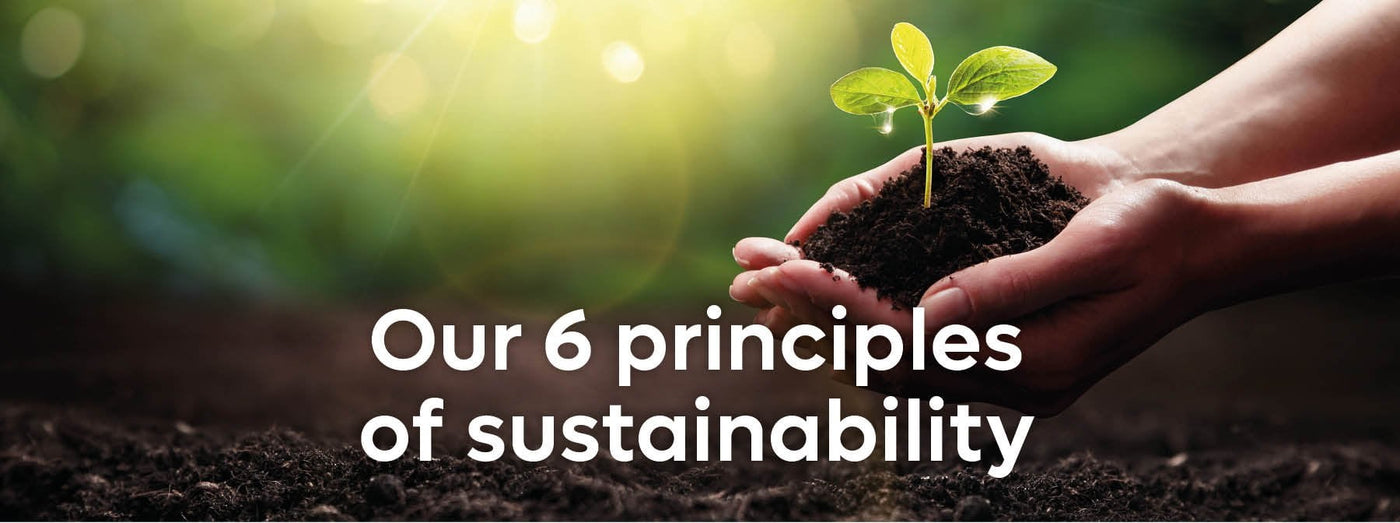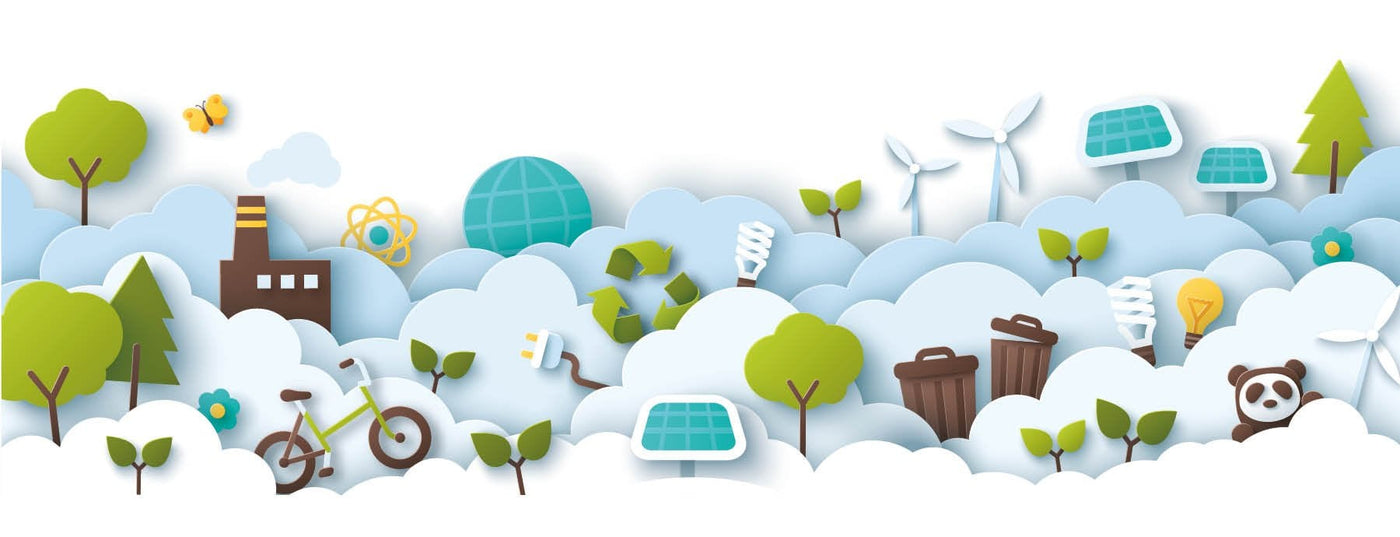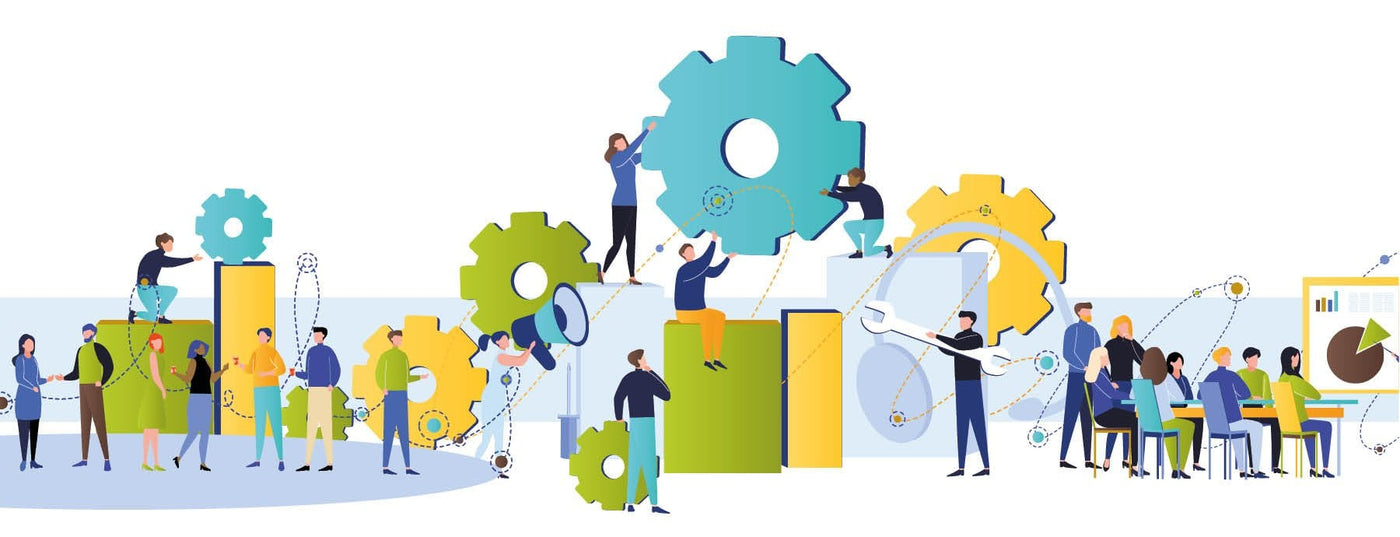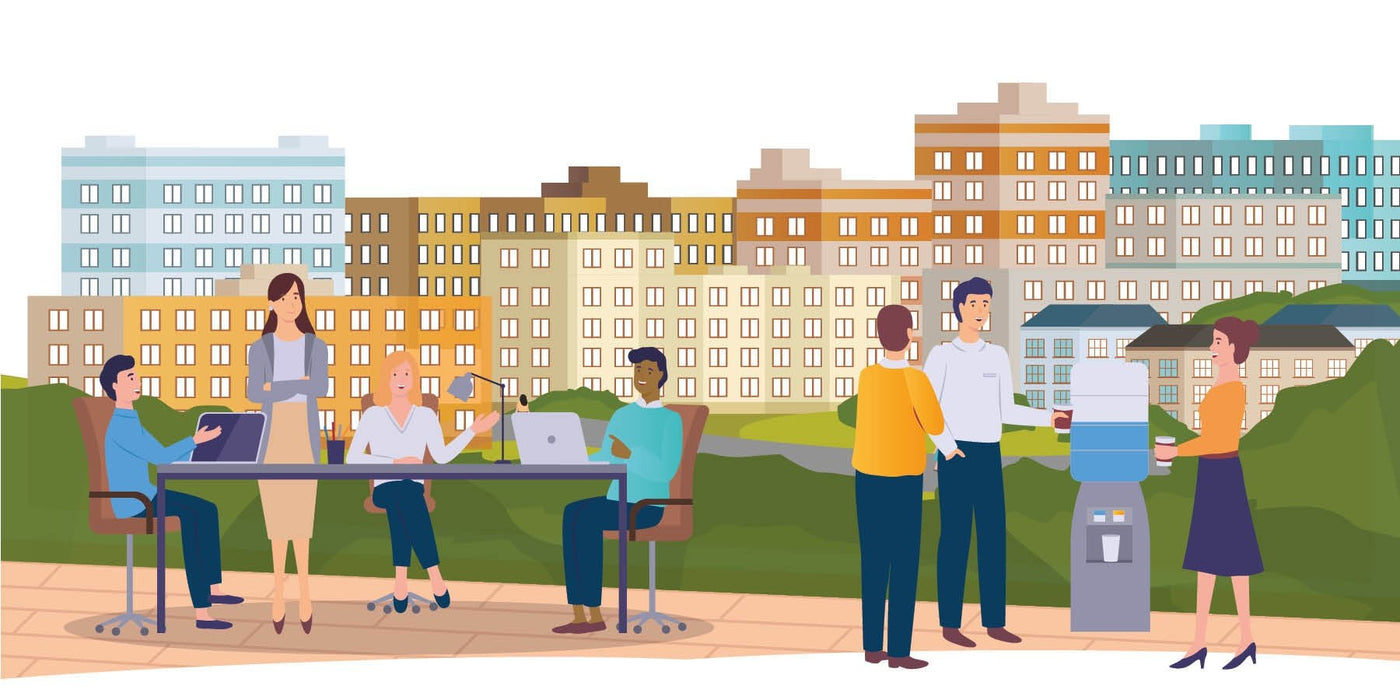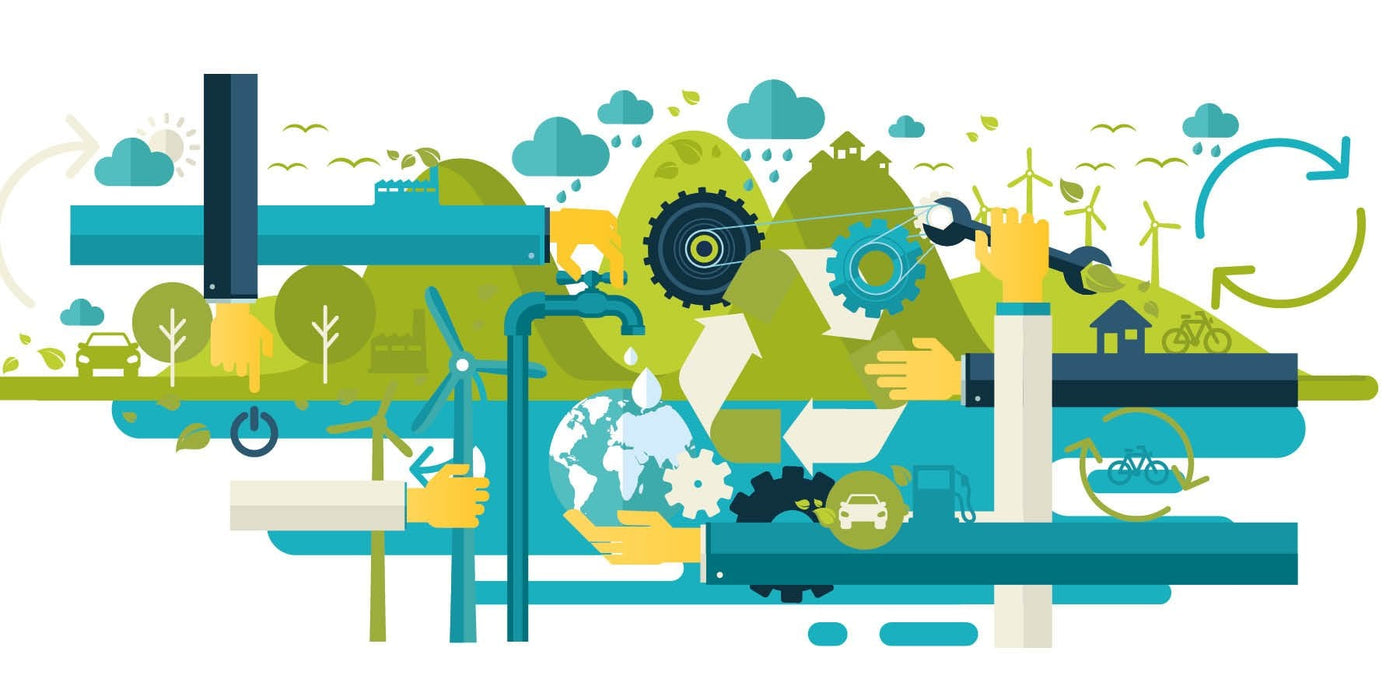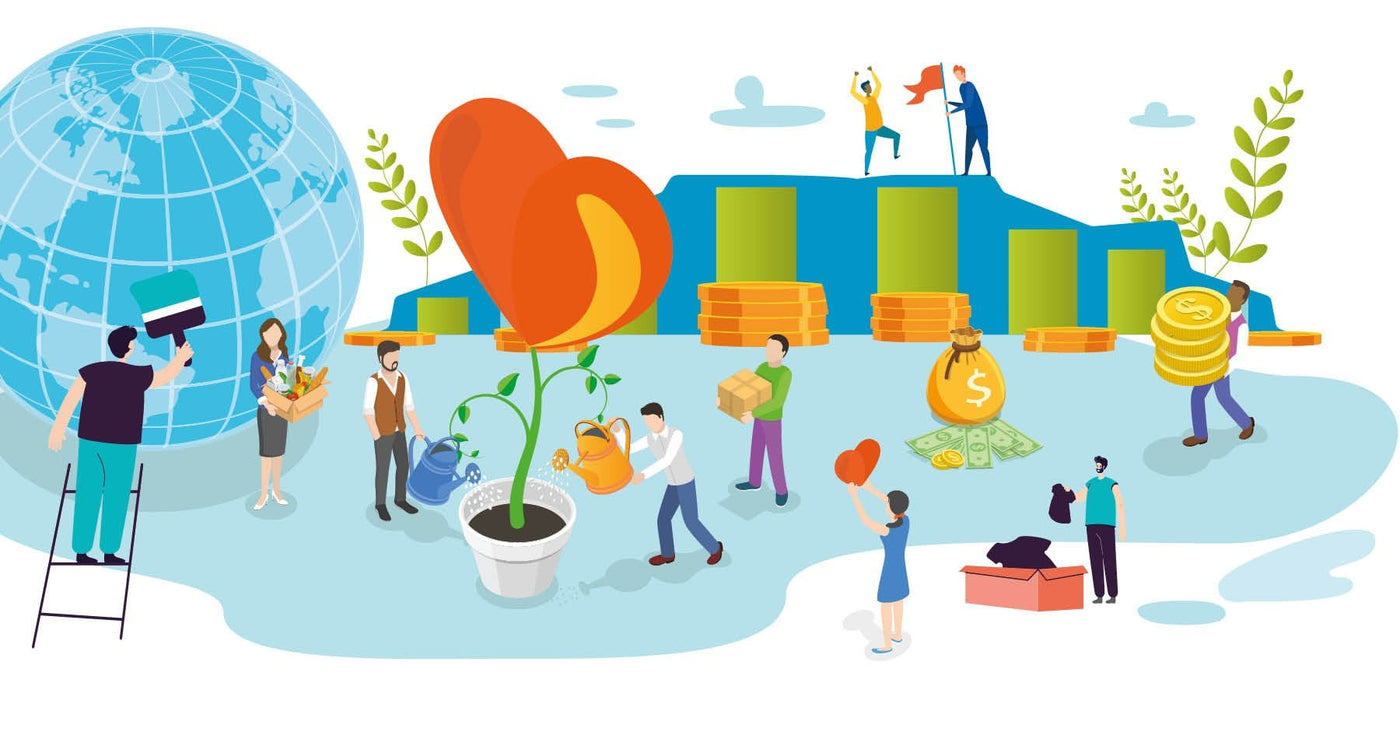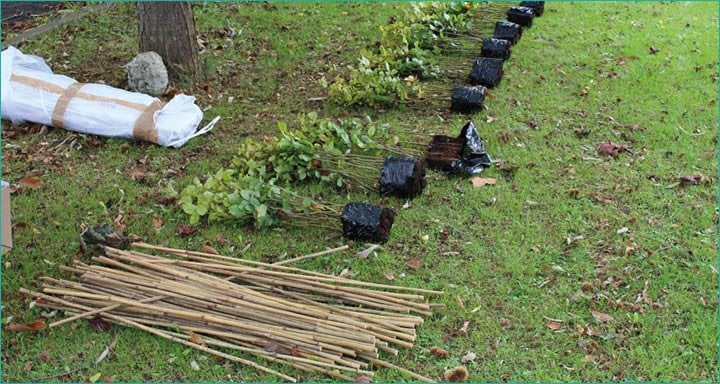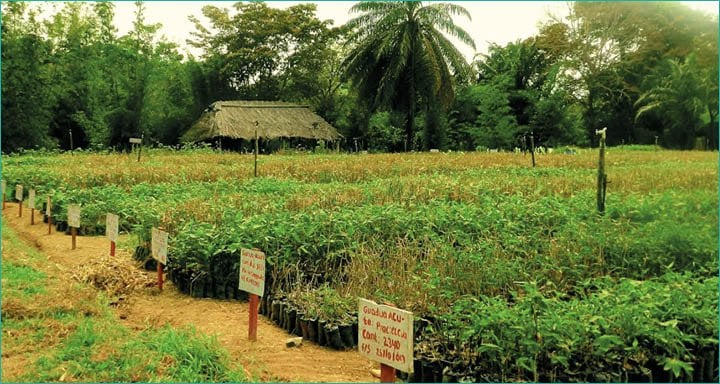6 Principles of Sustainability
01 Reduce, reuse, repair & recycle
We take this classic sustainability principle to heart — reducing our use of resources, reusing, repairing and recycling whenever possible.
Reduce: Reducing the impact of our product manufacture, and our operations.
Product
• Reducing the use of emissions-intensive materials without compromising on quality
• Educating customers to buy quality and champion long-life machines to reduce production and disposal emissions created by lower quality
• Demanding the best quality components from manufacturing partners
• Promoting products that reduce energy use and eliminate waste such as water and softwood
• Promoting good maintenance and repair rather than a 'throw away' culture
• Educating customers about the embedded emissions within products to aid the purchasing decision
• Reducing packaging and eliminate hard to recycle materials
Operations
• Using electric vehicles only for business travel – cars and forklift
• Only essential overseas travel
• Aiming for zero airfreight
• Using 100% renewable energy suppliers for warehouses and offices
• Investing in more efficient utilities systems where there is a net environmental gain
• Only buying new when necessary to maintain a competitive, customer focused business
• Considering office waste. Use of reusable coffee cups, only print when essential
Reuse: 90% of the emissions we create is from raw materials and their production. Carefully reusing components is one of the most positive changes we can make.
Product
• We aim to collect every unit sold at the end of its life cycle, and reuse it (subject to quality inspection).
• We collect the materials in our products that are unaltered even after years of use, and reuse them properly.
• We ensure that any imperfect products are sold or donated, rather than scrapped.
Operations
• We review our packaging processes regularly, and reuse shipping materials as often as we can.
Repair: We are committed to repairing every hand dryer we possibly can, to prevent our products being wasted and discarded.
If a customer is using an energy inefficient older hand dryer model at a high use site, we will still try to repair the old dryer and find a suitable low-usage site, rather than disposing of it.
We look at the net benefits of our repairs — using carbon emissions calculation software to guide our office and warehouse equipment purchases.
Recycle: Unfortunately, not all components can be reused due to wear or damage. We separate all our end-of-life products into material types and try to find the lowest impact way to upcycle or recycle them.
02 Innovative Eco Design
We work closely with our manufacturer partners to design and produce cutting edge products with sustainability at their heart.
We are currently introducing award-winning, patented, flame retardant bio-plastics to our manufacturing partners. The formula for this plastic was created at the University of Sheffield, and commercialised by Floreon.
This bio-plastic material reduces embedded carbon emissions in the plastic components we use. These are plastics made using plants such as sugar cane and corn, and have less than 18% of the environmental impact of oil-based plastic production.
For us, the costs are higher. However we feel it’s important for us to lead the way and drive change within our supply chain, by sourcing innovative and exciting materials.
03 Ethically Aligned Partners
We only work with suppliers who share our environmental and social objectives. We are constantly working on having audits available on all our overseas and UK suppliers, outlining working conditions, environmental practices and so on.
04 Employee Ownership
We believe that every employee should benefit from a well-run business. After all, it’s the people who make it all happen.
10% of company profits are given to the team as an annual bonus. And each year, our people get the opportunity to become shareholders. Currently 40% of the team are shareholders in the company. We hope that this will be 100% over the next few years!
05 Giving more than we take
We pledge 10% of profits to charitable causes. In 2021 for example, we gave away £40,000 worth of much-needed stock to local charities and businesses. We donated £10,000 to Self-help UK to set up COVID support groups, £2500 to the children’s hospital, and various small donations to local tree planting, food banks and community interest groups.
We also spent over £10,000 on offsetting 1000 tonnes of CO2 through verified organisations.
Our team also volunteers for environmental projects, in partnership with 1% For The Planet.
You see ‘leave it as you found it’ on signs in public toilets all the time. We liked that phrase a lot, and it’s taken on a new meaning for us.
We do our best as a business to create as little damage as possible, and pledge to tidy up any damage caused by our operations.
We precisely measure our entire scope of carbon emissions for 2020-21 and invested in verified carbon offset projects managed by Climate Partner to offset our emissions.
We also recognise that offsetting is a last resource. Our greatest impact comes from reducing our emissions — and from using our profits to invest in front-line environmental projects.
We intend to leave this world as we found it (or better).
06 Environmental education & action
We believe that businesses should take active steps to learn, and continually reduce our impact. We learn from experts, and we share what we know to inspire others to take action.
Our team volunteers and engages with like-minded suppliers and networks — and we take courses to expand the ways that we can grow our contribution.
What does being a carbon neutral business mean?
Our calculations include the raw materials, production and disposal of the products we sell. We also take into account our operations as a company, including the emissions created by our people travelling to work.
Many companies claim carbon neutrality by offsetting only their directly produced emissions, like their office energy and cars. The regulations for this are currently not strict enough. So we chose to leave nothing out.
We achieved carbon neutrality in our 2020-2021 business year, which is a great source of pride!
But for us to truly make the positive impact we desire — we need to keep investing in important environmental projects.
Check out our projects with Carbon Footprint, and Climate Partner:
